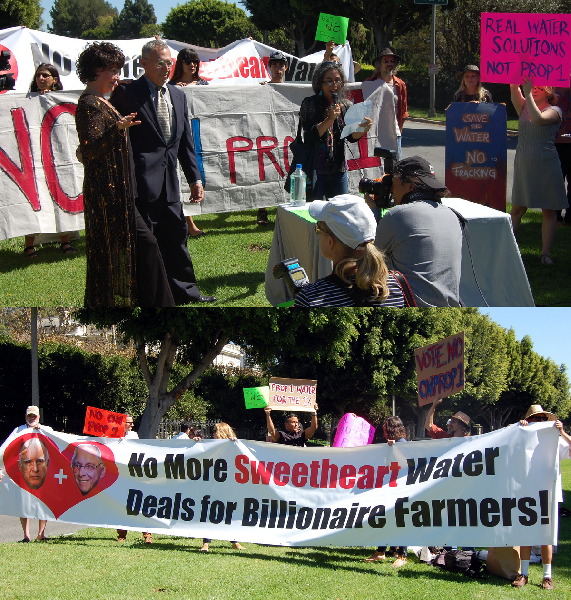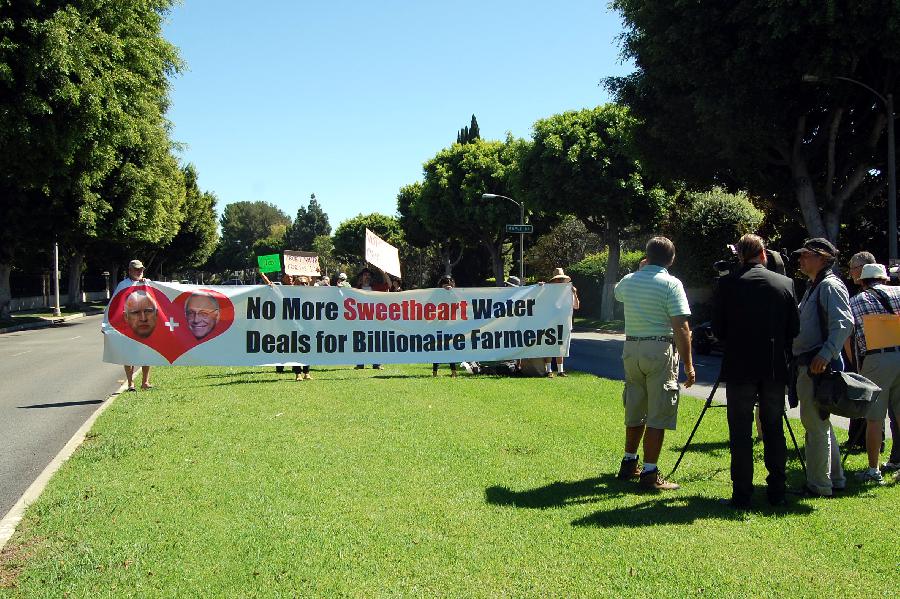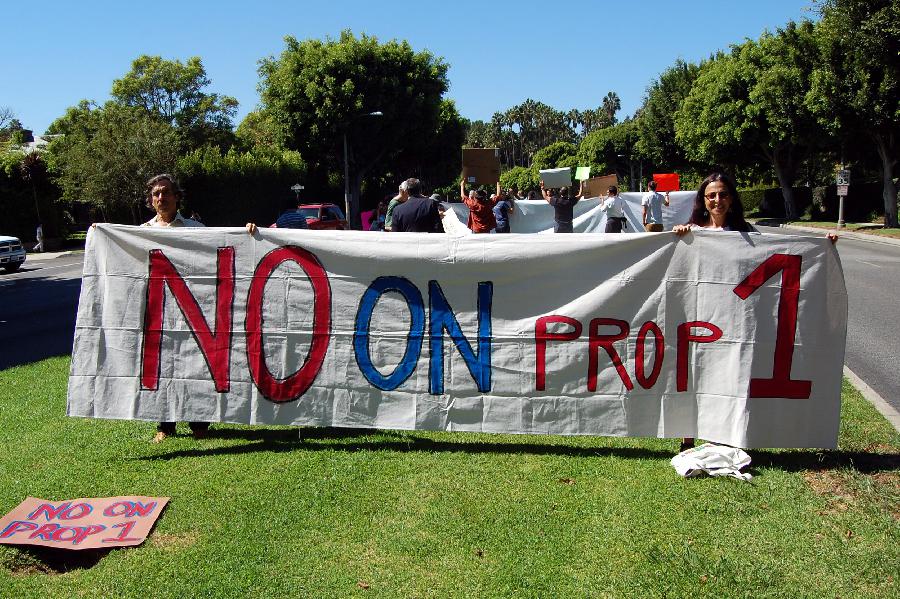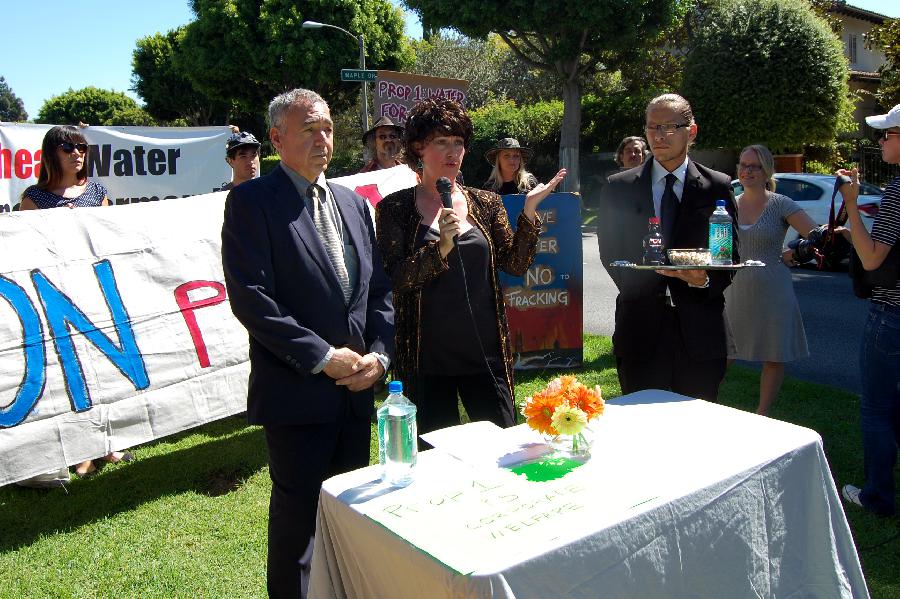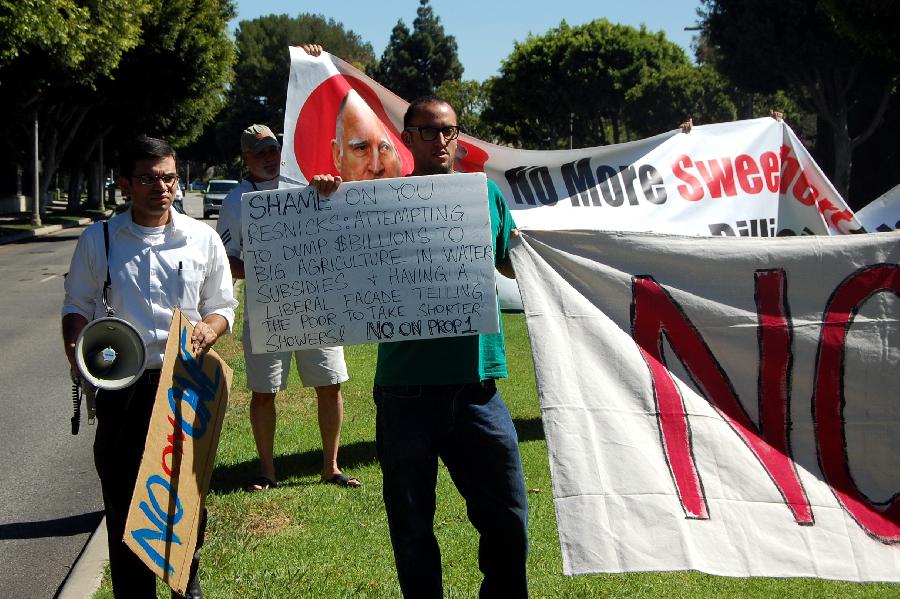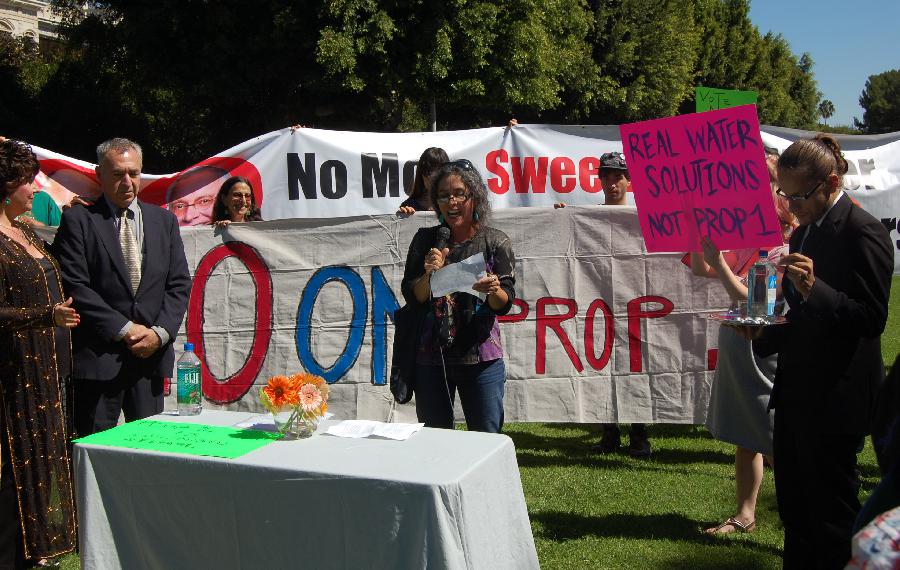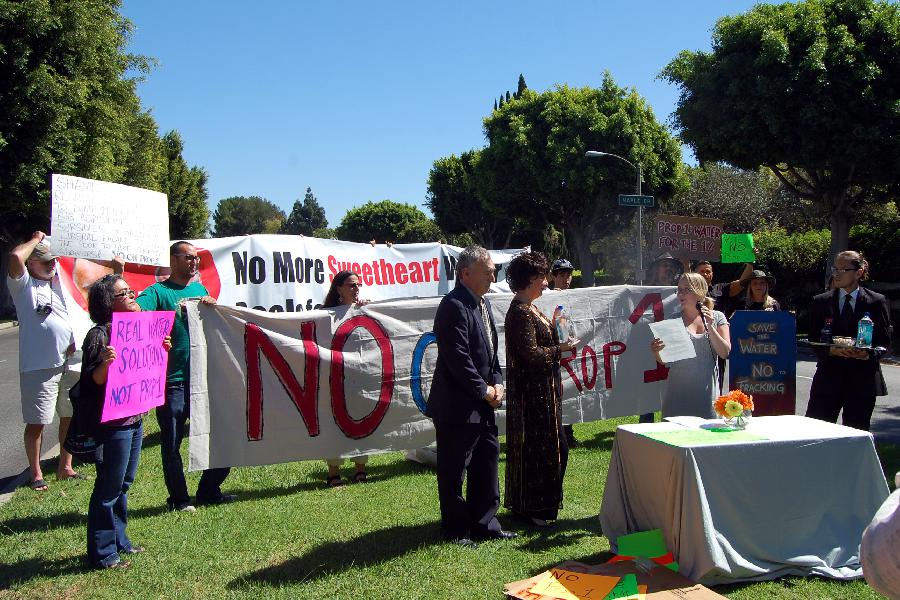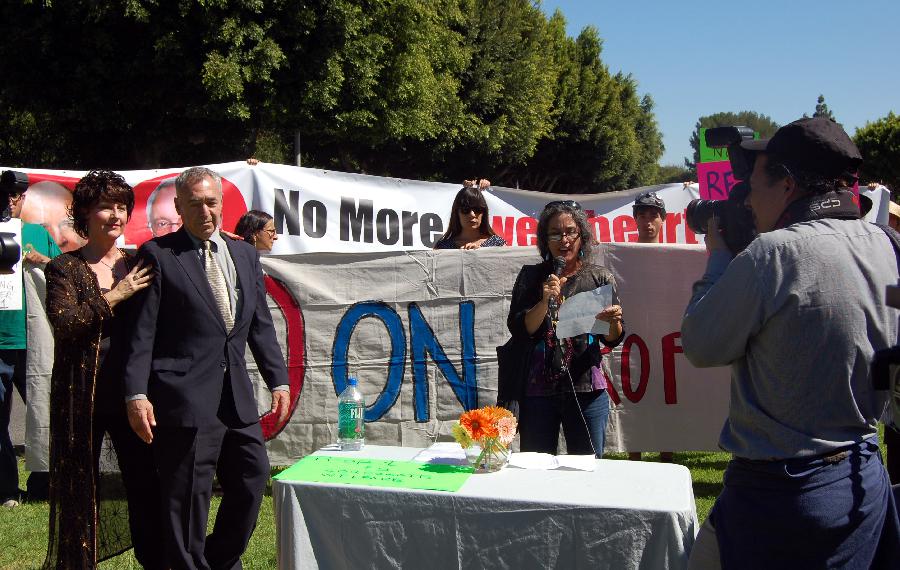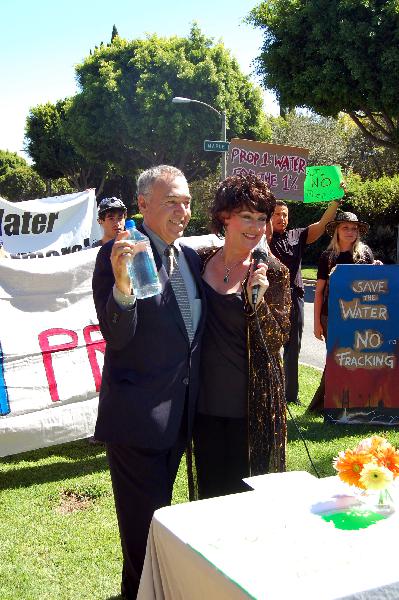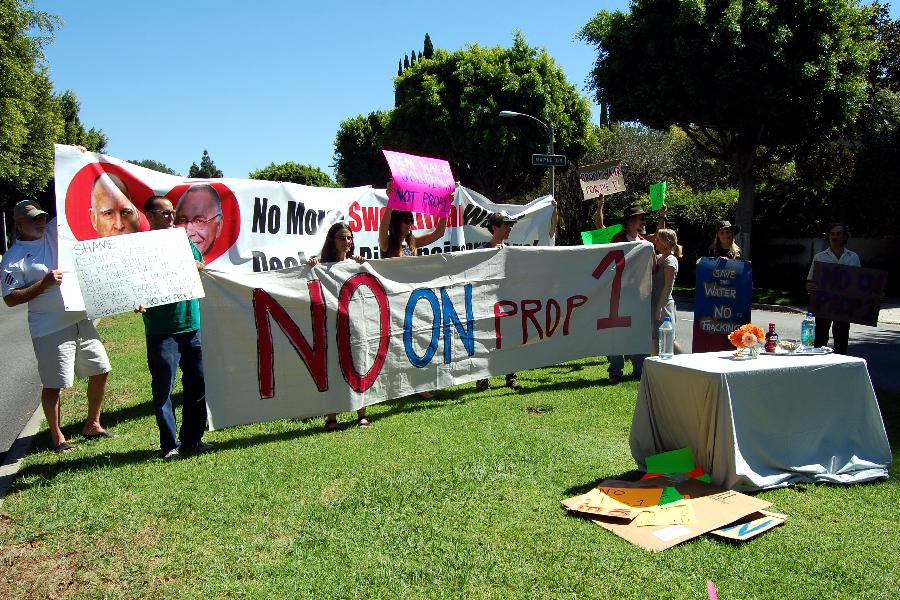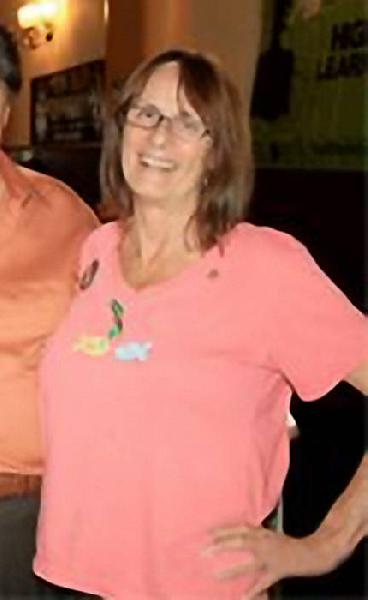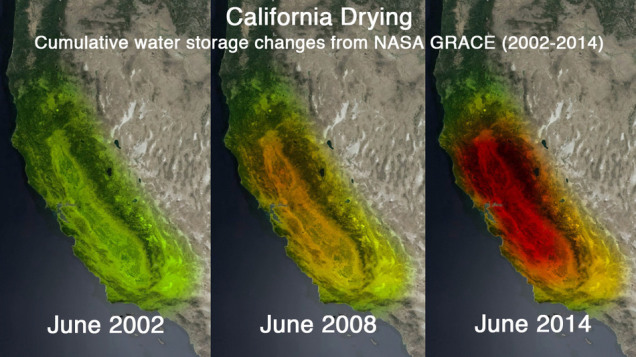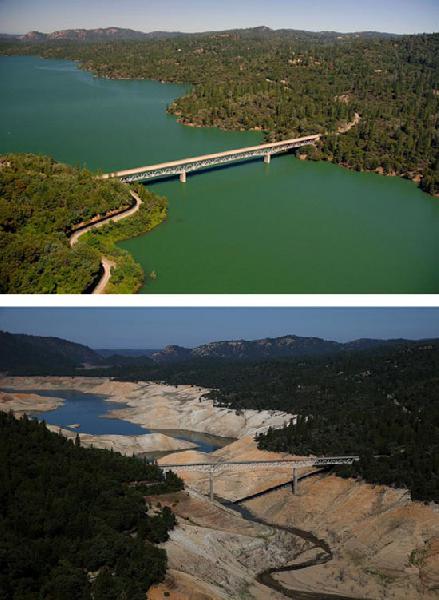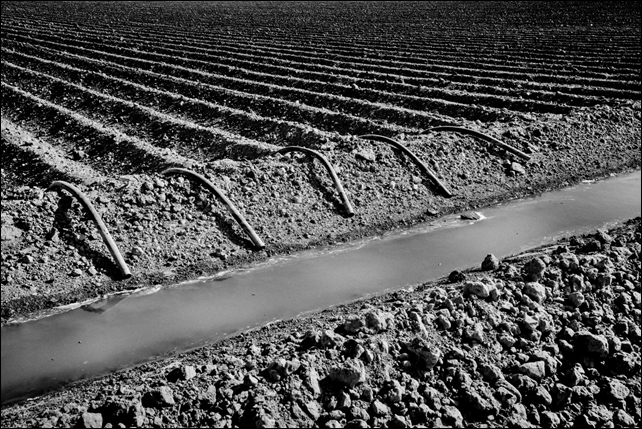| About Us | Contact Us | Calendar | Publish | RSS |
|---|
|
Features • latest news • best of news • syndication • commentary Feature Categories IMC Network:
Original Citieswww.indymedia.org africa: ambazonia canarias estrecho / madiaq kenya nigeria south africa canada: hamilton london, ontario maritimes montreal ontario ottawa quebec thunder bay vancouver victoria windsor winnipeg east asia: burma jakarta japan korea manila qc europe: abruzzo alacant andorra antwerpen armenia athens austria barcelona belarus belgium belgrade bristol brussels bulgaria calabria croatia cyprus emilia-romagna estrecho / madiaq euskal herria galiza germany grenoble hungary ireland istanbul italy la plana liege liguria lille linksunten lombardia london madrid malta marseille nantes napoli netherlands nice northern england norway oost-vlaanderen paris/Île-de-france patras piemonte poland portugal roma romania russia saint-petersburg scotland sverige switzerland thessaloniki torun toscana toulouse ukraine united kingdom valencia latin america: argentina bolivia chiapas chile chile sur cmi brasil colombia ecuador mexico peru puerto rico qollasuyu rosario santiago tijuana uruguay valparaiso venezuela venezuela oceania: adelaide aotearoa brisbane burma darwin jakarta manila melbourne perth qc sydney south asia: india mumbai united states: arizona arkansas asheville atlanta austin baltimore big muddy binghamton boston buffalo charlottesville chicago cleveland colorado columbus dc hawaii houston hudson mohawk kansas city la madison maine miami michigan milwaukee minneapolis/st. paul new hampshire new jersey new mexico new orleans north carolina north texas nyc oklahoma philadelphia pittsburgh portland richmond rochester rogue valley saint louis san diego san francisco san francisco bay area santa barbara santa cruz, ca sarasota seattle tampa bay tennessee urbana-champaign vermont western mass worcester west asia: armenia beirut israel palestine process: fbi/legal updates mailing lists process & imc docs tech volunteer projects: print radio satellite tv video regions: oceania united states topics: biotechSurviving Citieswww.indymedia.org africa: canada: quebec east asia: japan europe: athens barcelona belgium bristol brussels cyprus germany grenoble ireland istanbul lille linksunten nantes netherlands norway portugal united kingdom latin america: argentina cmi brasil rosario oceania: aotearoa united states: austin big muddy binghamton boston chicago columbus la michigan nyc portland rochester saint louis san diego san francisco bay area santa cruz, ca tennessee urbana-champaign worcester west asia: palestine process: fbi/legal updates process & imc docs projects: radio satellite tv |
printable version
- js reader version
- view hidden posts
- tags and related articles
View article without comments Voters Rally Against Proposition 1 Outside the Beverly Hills Mansion of Water Baronsby Jessica Lux Friday, Oct. 03, 2014 at 5:35 AMPress conference to launch the Los Angeles campaign to vote no on Proposition 1 held outside the home of the billionaire agribusiness tycoons who would benefit from the “water bond.” #NoOnProp1
Beverly Hills, CA—Despite benefiting handsomely from the privatization of the Kern County Water Bank in 1995, and from a business model that re-sells subsidized water to different branches of the government and developers around the state, Stewart and Lynda Resnick want more, more, more.
California’s November 2014 ballot Proposition 1 would fund up to $7.5 billion in general obligation bonds for water-related infrastructure that would directly benefit billionaires like the Resnicks, who own the largest pistachio and almond producer in the world, Paramount Agribusiness, which is also the largest farming operation in America. Dozens of voters occupied the median of Sunset Blvd outside the Resnick mansion in Beverly Hills Thursday afternoon to declare “No More Sweetheart Deals for Billionaire Farmers!” Hand-painted signs pleaded for “real water solutions, not Prop 1” and decried the water bond as “water for the 1%,” not for the people of California. #NoOnProp1 At the “No on Prop 1” press conference (http://www.noonprop1.org/), actors portraying the Resnicks toasted the growth of their own wealth thanks to powerful friends in Sacramento, while a tuxedo-clad waiter held a tray of POM Wonderful juice, Fiji Water, and Wonderful Pistachios (brands owned by the Resnicks’ umbrella company Roll Global). The skit touted record profits in a drought year, revealing the business model of growing water-intensive crops on toxic Central Valley soil for export to foreign markets in China. Proposition 1 is a blank check for infrastructure projects that directly benefit private water interests. The Kern County Water Bank Authority and the Westlands Water District are eager to increase their capacity to sell water via the proposed Sites Reservoir in Colusa County, which would store water pumped from the Sacramento River. Brenna Norton of Food & Water Watch noted that the bill earmarks $2.7 billion for such dams for special corporate interests. “There’s no water to put in those damns!” she told KABC 7 Eyewitness News. “If there was, all of that water is earmarked for corporations.” Proponents of Proposition 1, including Governor Jerry Brown and Los Angeles Mayor Eric Garcetti, point out the bill includes funding for cleaning underwater aquifers and stormwater capture. Brenna Norton acknowledges that a small portion of the funds could potentially be used for a project such as cleaning up the San Fernando Valley aquifer, but the funds are incomplete, not guaranteed, and “it’s kind of like asking someone to go buy the whole grocery store when they only need a box of crackers.” Los Angeles resident Antonieta Villamil described herself as a “taxpayer hungry for common sense” who is “sick and tired of our political representatives not fixing our crumbling L.A. infrastructure.” She reminded the crowd that the City of Los Angeles has 1-2 water main breaks a day. Proposition 1 allocates money towards the wrong priorities, with “inadequate funding for water recycling, not enough funding for groundwater cleanup, and too little funding for local projects that create a real benefit for our local communities.” Should taxpayers subsidize dams that benefit private agriculture corporations? When interest is added, the total cost of Proposition 1 nearly doubles, to $14.4 billion, all to help water exporters who want to overpump the San Francisco Bay Delta for industrial farming and re-sell taxpayers water that is already owned by the public. FULL PHOTO GALLERY: https://www.facebook.com/media/set/?set=a.616589391791253.1073741873.405414422908752
Report this post as:
"No More Sweetheart Water Deals for Billionaire Farmers!" #NoOnProp1 October 2, 2014by Jessica Lux Friday, Oct. 03, 2014 at 5:35 AM
"No More Sweetheart Water Deals for Billionaire Farmers!" #NoOnProp1 protest against Proposition 1 on October 2, 2014 (Beverly Hills, CA). http://www.noonprop1.org/california-prop-1-water-bond/
Report this post as:
#NoOnProp1 protest outside the home of Beverly Hills billionairesby Jessica Lux Friday, Oct. 03, 2014 at 5:35 AM
"No on Prop 1" protest outside the home of Beverly Hills billionaire water barons Stewart and Lynda Resnick. October 2, 2014. Prop. 1 adds over $14.4 billion in taxpayer debt (including interest) to:
-Help exporters take water from Northern California rivers, threatening the salmon industry, jobs, and fisheries. -Force taxpayers to buy water that the public already owns to protect fish and to ensure reliable supplies for export. -Help industrial farming operations overpump the San Francisco Bay Delta and avoid fixing the environmental damage they cause. -Subsidize private interests who want to build expensive dams that will only increase water supply by 1% http://www.noonprop1.org/california-prop-1-water-bond/ #NoOnProp1
Report this post as:
#NoOnProp1 Rally and Skitby Jessica Lux Friday, Oct. 03, 2014 at 5:35 AM
At the “No on Prop 1” press conference (http://www.noonprop1.org/), actors portraying the Resnicks toasted the growth of their own wealth thanks to powerful friends in Sacramento, while a tuxedo-clad waiter held a tray of POM Wonderful juice, Fiji Water, and Wonderful Pistachios (brands owned by the Resnicks’ umbrella company Roll Global). The skit touted record profits in a drought year, revealing the business model of growing water-intensive crops on toxic Central Valley soil for export to foreign markets in China.
Report this post as:
#NoOnProp1 protest outside the home of Beverly Hills billionairesby Jessica Lux Friday, Oct. 03, 2014 at 5:35 AM
"Shame on you, Resnicks: Attempting to dump $Billions to Big Agriculture in water subsidues & having a liberal facade telling the poor to take shorter showers! No on Prop 1" rally and press conference, October 2, 2014 (Beverly Hills, CA).
Report this post as:
Rally & Press Conference #NoOnProp1by Jessica Lux Friday, Oct. 03, 2014 at 5:35 AM
Los Angeles resident Antonieta Villamil described herself as a “taxpayer hungry for common sense” who is “sick and tired of our political representatives not fixing our crumbling L.A. infrastructure.” She reminded the crowd that the City of Los Angeles has 1-2 water main breaks a day. Proposition 1 allocates money towards the wrong priorities, with “inadequate funding for water recycling, not enough funding for groundwater cleanup, and too little funding for local projects that create a real benefit for our local communities.” #NoOnProp1
Report this post as:
Press Conference #NoOnProp1by Jessica Lux Friday, Oct. 03, 2014 at 5:35 AM
Proposition 1 is a blank check for infrastructure projects that directly benefit private water interests. The Kern County Water Bank Authority and the Westlands Water District are eager to increase their capacity to sell water via the proposed Sites Reservoir in Colusa County, which would store water pumped from the Sacramento River. Brenna Norton of Food & Water Watch noted that the bill earmarks $2.7 billion for such dams for special corporate interests. “There’s no water to put in those damns!” she told KABC 7 Eyewitness News. “If there was, all of that water is earmarked for corporations.”
Report this post as:
“No on Prop 1” Los Angeles area press conferenceby Jessica Lux Friday, Oct. 03, 2014 at 5:35 AM
"No on Prop 1" protest outside the home of Beverly Hills billionaire water barons Stewart and Lynda Resnick. October 2, 2014. Prop. 1 adds over $14.4 billion in taxpayer debt (including interest) to:
-Help exporters take water from Northern California rivers, threatening the salmon industry, jobs, and fisheries. -Force taxpayers to buy water that the public already owns to protect fish and to ensure reliable supplies for export. -Help industrial farming operations overpump the San Francisco Bay Delta and avoid fixing the environmental damage they cause. -Subsidize private interests who want to build expensive dams that will only increase water supply by 1% http://www.noonprop1.org/california-prop-1-water-bond/ #NoOnProp1
Report this post as:
Rally & Press Conference “No on Prop 1”by Jessica Lux Friday, Oct. 03, 2014 at 5:35 AM
At the “No on Prop 1” press conference (http://www.noonprop1.org/), actors portraying the Resnicks toasted the growth of their own wealth thanks to powerful friends in Sacramento, while a tuxedo-clad waiter held a tray of POM Wonderful juice, Fiji Water, and Wonderful Pistachios (brands owned by the Resnicks’ umbrella company Roll Global). The skit touted record profits in a drought year, revealing the business model of growing water-intensive crops on toxic Central Valley soil for export to foreign markets in China.
Report this post as:
#NoOnProp1 protest along Sunset Blvd in Beverly Hillsby Jessica Lux Friday, Oct. 03, 2014 at 5:35 AM
Press conference and rally outside the home of agribusiness tycoons who own Paramount farms and control vast amounts of water in California.
Prop. 1 adds over $14.4 billion in taxpayer debt (including interest) to: -Help exporters take water from Northern California rivers, threatening the salmon industry, jobs, and fisheries. -Force taxpayers to buy water that the public already owns to protect fish and to ensure reliable supplies for export. -Help industrial farming operations overpump the San Francisco Bay Delta and avoid fixing the environmental damage they cause. -Subsidize private interests who want to build expensive dams that will only increase water supply by 1% http://www.noonprop1.org/california-prop-1-water-bond/
Report this post as:
Video of Meet the Resnicks actionby Lauren Steiner Friday, Oct. 03, 2014 at 2:24 PMlaurensteiner57@gmail.com 3102739031 1725 Clear View Dr Hot off the press, my video of yesterday's action: "Meet the Resnicks: The Koch Brothers of California Water" http://youtu.be/RngUvEwF8cE
Report this post as:
sign - real water 'solutions'by crazy_inventor Friday, Oct. 03, 2014 at 2:50 PM
the only 'solution' is to evacuate and no amount of protesting will 'fix' the predicament
- but career activists who only protest as a career, while continuing BAU, don't care about real solutions
Report this post as:
California has 1 year of water leftby crazy_inventor Friday, Oct. 03, 2014 at 3:20 PMhere's your 'solution' "California has only enough water in storage for the next 12 to 18 months." - LA times
The UN recommends you migrate from California. "Lynne Wilson, who serves on the climate change delegation in the United Nations, “Civilizations in the past have had to migrate out of areas of drought. We may have to migrate people out of California.” It seems certain that at this rate of increasing drought, millions of Americans, presently living in California, better begin packing their collective bags because it could soon be moving day." Will California become America's first failed state?
Report this post as:
100,000 Wells About to Go Dry:by crazy_inventor Monday, Oct. 06, 2014 at 1:38 PM
NASA Finds California Drought Removing 4 Trillion Gallons of Water Each Year
As of October 4, the State of California had entered its 4th year of a raging drought that _shows no sign of abating_. A drought that a growing number of studies are linking to human-caused climate change. NASA’s GRACE gravity sensor is providing a record of a historic drying that has been ongoing since at least 2002. The loss of ground water is primarily due to increasing rates at which both communities and farmers are tapping well water supplies to make up for the massive deficits of the ongoing drought. Overall, more than 600,000 wells feed individual homes, small communities and farms throughout the Central Valley. As wells dried up, residents and growers in the region turned to deeper and deeper drilling — tapping water further and further underground. The result is a very rapid depletion of the aquifer water store. A depletion starkly visible to NASA satellite sensors. A race for the last remaining drops of an ever-shrinking pool of water.
Report this post as:
Lake Oroville California's largest reservoirby crazy_inventor Monday, Oct. 06, 2014 at 1:41 PM
in 2011
Report this post as:
ignoranceby Matthew Brady Wednesday, Oct. 08, 2014 at 8:37 PMmatdachamp1@gmail.com 5598056817 What the people of the metropolitan areas of the Bay Area and Southern California don't understand is how affordable, fresh food gets to their dinner tables. I definitely don't agree with capitalism, but without water, expect to pay double for the produce and meats that u have been a custom to for so long. Agricultural is the basis for our lives. Without water, you can not grow food or raise livestock. Many of the people from the Bay and Southern California have never seen a farm in their entire lives, and understand much less about how drought can affect an economy. Remember the dust bowl and the great depression? Before protesting against water bond propositions, u might want to become educated on the influence that water shortages have on the entire country.
Report this post as:
ignoranceby Matthew Brady Wednesday, Oct. 08, 2014 at 8:37 PMmatdachamp1@gmail.com 5598056817 What the people of the metropolitan areas of the Bay Area and Southern California don't understand is how affordable, fresh food gets to their dinner tables. I definitely don't agree with capitalism, but without water, expect to pay double for the produce and meats that u have been a custom to for so long. Agricultural is the basis for our lives. Without water, you can not grow food or raise livestock. Many of the people from the Bay and Southern California have never seen a farm in their entire lives, and understand much less about how drought can affect an economy. Remember the dust bowl and the great depression? Before protesting against water bond propositions, u might want to become educated on the influence that water shortages have on the entire country.
Report this post as:
I read a story about the farmers in the central valley recentlyby crazy_inventor Wednesday, Oct. 08, 2014 at 11:07 PM
Zero percent water: Record drought killing off century-old California farms
The drought is now killing off century-old California farms. People here don’t blame the weather gods for not bringing rain — they blame the rest of us for not giving a damn. I speed along highway 99, the asphalt bleary under the high scorching sun. I’m heading to Kingsburg to speak with farmers about one of the worst recorded droughts in California history. I’m running late, a little lost. My GPS screen flickers. The electric-lady-voice instructs me to turn right, but there’s nothing on the right except for ditch weeds and fallow fields. Flats brown to the horizon. Dust devils swirl out there, disappear, rise again in another spot. Miles later I exit. I think I’ve driven too far. I turn right and then right again and find myself at a four-way stop. I take out my phone, hoping for a cell signal. It’s then I hear the dirt bike. A young and shirtless man coasts in from the west. His eyes turn to my silver Nissan with the out-of-state rental plates. He revs his engine, lurches into a wheelie then speeds in front of me, his middle finger thrust in my direction. Welcome to the Central Valley, ground zero of the water war. Outsiders take heed for this is a troubled land Before we get to what this drought means — the anger and paranoia, the heartbreak and bitterness — it’s important to remember the Central Valley isn’t just any valley. It’s one of the most productive agricultural regions in the world. Our country’s breadbasket. Our primary source for tomatoes, almonds, grapes, cotton, and dozens of other products. I’m scheduled to see all of it, on what I’m told will be a “tour of destruction.” My first stop is a beer with a man named “Mule.” Mule is the patriarch of Olson Family Farms. On hot summer evenings, locals congregate on a spit of riverside land deep in the Olsons’ stone-fruit orchards. Guinea fowl wander the edges of the lot. The riverbanks shoulder a Lakota tepee, a cabin, a smokehouse, a bungalow on stilts they call the “inner sanctum,” and a deck where a group of men drink beer and watch the river’s brown water roll. Mule has a long gray beard, wears a military jacket and a leather tricorne hat. He looks like a prospector straight from the gold-pan era, and chastises me when I call him “sir.” As I find a spot on the deck, Mule says, “We’re family down here. Down here we look after each other.” He glances around at the farmers gathered. “This here’s my family.” He says it like a warning — battle lines are clearly drawn around this drought, every outsider a potential spy—and I know he’s telling me to watch my intentions. “Yes, sir,” I say, and Mule cracks the slightest grin and rears a hand as if he just might hit me. Two of my main expectations are immediately dispelled. One, I expect the farmers I meet on this trip to be blighted and sorrowful, a bunch of Tom Joads just trying to make ends meet. But these guys are irreverent and cocksure. Tired, maybe. Clearly they listen to a lot of talk radio. I also expect ceaseless talk of the weather. Having grown up in farm country, I know every farmer looks helplessly to the sky hoping the weather gods will be kind. Even in the best of years, the weather is a weight. But in this current catastrophic cycle — three years of near-record rainfall deficits putting most of California at least one full year of normal rainfall behind recovery, some areas closer to two years, all while record breaking heat has currently left 58% of the state in “exceptional drought” conditions — I’m thinking I’ll hear nothing short of the lament of the forsaken. Instead, a man named Jeff Yarbro hammers on about who they see as enemy #1: environmentalists. As Yarbro has it, these particular environmentalists have fought to make sure whatever precious water is released from the state’s reservoirs goes first to facilitating salmon runs. The problem is that most of this water heads out into the ocean with no attempt to reuse it. “They want this valley all jackrabbits and sage brush,” he says, meaning the environmentalists. “They don’t believe we should be here. They’d like to turn the valley like it was a hundred years ago. And for us to go elsewhere.” A dry canal near the Tulare Lake basin in Corcoran, Calif. Andy Vidak, cherry farmer and senator for the 16th district, piggybacks Yarbro’s passion, and for the next 20 minutes goes deeply and conspiratorially political. He educates me on a long series of decisions made by a “small percentage of politicians who also hold the most power” in collaboration with radical environmentalists who have worked to destroy the farmers of the Central Valley. “This is perfect politics,” Vidak says. “The perfect war. This valley is conservative.” He contends big-city liberals are aware they can save the salmon, don the hero’s crown for environmentalists, all while eliminating conservative political opposition. I respectfully suggest that one of the most productive agricultural valleys in the world couldn’t possibly be sacrificed in the name of politics — there’s a population base, functioning towns. “No,” Vidak counters. “People in New York or Boise, Idaho, don’t care where their produce comes from.” The valley of farmers could go away, and so long as the product came from elsewhere no one would care. He tells me a story of a local food bank. It was mid-summer and the men in line would be working if so much land wasn’t left unfarmed due to the water crisis. If that wasn’t bad enough, he noticed the food bank was handing out cans of carrots grown in China. “Carrots from China,” Vidak says. “All while we have two of the largest carrot growers in the world down here. That’s just wrong.” I ask if he thinks there’s any hope for the Central Valley farmer. Vidak believes they’re going to win eventually because the country needs good, nutritious food. He fights on hoping the balance of power can again be shifted back to the valley, back to the farmer. Mule crosses over to crouch beside me, his tricorne hat almost piercing an eye. He holds up a smartphone and shows me a photo of a man, Burdizzo pincers in hand, castrating a bull. “That’s Andy,” Mule says. No one talks for a time. The deck is still. Clearly these men are angry, desperate. I sympathize, but also wonder if maybe these conspiracy theories and salmon-supervillains aren’t a sign they’ve been driven a little mad. Mule gives me a horse blanket and we bed down for the night on the deck. The “family” snoring all around me, I try in vain to sleep, the river sparkling, the moon oddly bright in the sky. The next morning I meet with the two men who, I’m told, will make sense of all of this for me. My guides on this tour of destruction. Jim Verboon is a big man, a walnut farmer and fisherman, with a friendly demeanor and a great jolly laugh. Russ Waymire is kind but serious. Hair oiled and shirt tucked, Russ is all business. We meet in a little café and the two of them offer me a crash course in California Water 101. Even in non-drought years the logistics are complex. Snowpack runoff is captured in reservoirs. Rivers and lakes are dammed. Canals snake across the state. Some water is managed at the federal level, some at the state. There are 500 public water districts, each with local ordinances. There are senior water rights, junior rights, riparian rights. As difficult as it is to understand water collection and distribution, Russ and Jim simplify the crisis by reiterating what I heard the night before: Radical environmentalists have effectively lobbied to have water diverted away from the Central valley. Beyond the salmon runs, Jim and Russ tell me about the delta smelt, a three-inch fish on the edge of extinction. Environmentalists claim the powerful pumps that send water to the Central Valley are killing the smelt. The plummeting fish population, and a lawsuit through the Endangered Species Act, has all but shut down the pumps. From the perspective of both environmentalists and the state, they’re managing for the longterm. As in, if they divert water from salmon or smelt, they may never recover. Ever. While the farmers will eventually be okay. For a time, they’ll have to make do with less. Jim and Russ have no fight with the fish. They simply believe blame is misplaced. In their argument, Jim and Russ speak like professors, evenhanded and thorough. They show me maps and graphs, articles highlighted and annotated, findings from a scientist at U.C. Berkeley, attempting to validate their theory that it’s not the pumps killing the fish, but raw sewage from Sacramento’s regional treatment plant. No matter the reason behind the pumps being shut off, one thing is irrefutable: The water isn’t coming to the valley. Much of California relies on surface water collected by state and federal water projects. This year’s snow pack was a dismal 29 percent. The winter and spring rains didn’t come. After farmers struggled through receiving only 40 percent of their surface water allotment in 2012 and 20 percent in 2013, the Westlands water district that delivers water to the west valley received an unprecedented 0 percent of their 2014 allotment. Before this year, receiving zero surface water was inconceivable to the valley farmer. But now it’s happened. Now anything’s possible. We drive through Jim’s walnut orchard, his trees full and healthy. But the river behind his land is a deep canal of sand. I’m confused. This is the Kings River, the same river I slept beside the night before. Turns out this isn’t the work of Mother Nature. A weir alters the water’s flow a few miles to the northeast. Those who live above the weir have a river. Those to the south look upon a ghost-trench of silt and banks of dying woods. Jim’s keeping his operation going with well water. He doesn’t want to deplete his land of groundwater, but has no choice. Wells are expensive, using groundwater dangerous. Natural aquifers are drying up, the land subsiding, as little as an inch in most areas, as much as a foot in others, the land collapsing as the water is siphoned out. How will he make it through this year? How does he sustain the land for the future? This is the balancing act Jim and every valley farmer must painfully confront. For years, Russ owned a custom farming business and has helped harvest acreage in every corner of this valley. As we start to drive, he points out fallow land his crews once worked. We pass pistachio trees and Russ notes that the leaves are yellowing, the trees failing. The farther west we drive the larger the plots of unfarmed land. Signs mark the road’s shoulder: NO WATER = HIGHER FOOD COSTS; NO HAY AGUA, NO HAY TRABAJO!; CONGRESS CREATED DUST BOWL. I take out my camera, but it’s impossible to convey the amount of fallow land with a photo. On one stretch, we drive for 35 minutes with unfarmed land on either side of the road for as far as the eye can see. This year, there’s an estimated four hundred thousand to eight hundred thousand acres left idle, or 1,250 square miles of land on the high side, a landmass larger than Los Angeles, San Diego, and San Francisco combined. We drive for miles through nothing but dirt and tumbleweeds and then, like an oasis, a dot of green emerges in all that brown. Trees surround a little house. David and Sharon Wakefield have lived outside of Mendota, California, for thirty-eight years. For most of those years, this land would be planted with row crops. With this year’s 0 percent water allotment, his land is fallow, and the land surrounding the farm has been sold to a solar company. Where once was cotton and alfalfa will soon be fields of panels. “I have no problem with solar farms,” David tells me, standing in his little yard. “I just don’t want to live in the middle of one.” The ten acres that holds the Wakefields’ house is the last scrap of a legacy of farming that started when Sharon’s family moved out from Oklahoma to escape the Dust Bowl of the 1930s. Jim introduces Sharon as “Dust Bowl Sharon,” and she smiles but gives Jim a playful glance like maybe he’s in trouble. David and Sharon have been fighting for years to stay in business, have successfully made it through past droughts by abandoning land and shrinking their acreage. They describe what the land used to look like, the rows of cotton, green plants tufted white, the fields teeming with workers at harvest time. Sharon shows me an old illustration from the Encyclopedia Britannica, a barnyard and farmhouse, crops in neat rows in the distance, a farmer harvesting wheat. A boy rides a brown horse. A woman in a white apron feeds the chickens. “This was my dream since I was a girl,” she says. “This is all I ever wanted.” They bought the land in 1976. They raised their kids here, made it a special place for the grandkids. At the edge of the yard sits a line of tractors. They’ve kept them all, dating back to a tractor Sharon’s grandfather once used, a tractor they take pride in saying still runs. Sharon says they planted every tree. A eucalyptus towers above us, and I begin to realize this land won’t just be sold, but all of this—the trees, the tractors, the house — might soon be gone. We’ve circled the house and stand back in their little yard. I ask what they’ll do now. David steals a glance at Sharon. “When we go I’ll never look back up that drive again. It’ll just be too hard.” Sharon says that when as kids they’d see a house and land being sold her father would say, “That’s someone’s broken dream.” She peers out beyond the green of her trees as the sun sets hard over the dusty, barren land. “This is our broken dream.” Just downriver from Jim’s orchard sits Bill Son’s pistachio farm. Bill is Russ and Jim’s friend, and is struggling with cancer. They’ve stopped to check on him because despite his illness he’s still trying to farm, working as many hours as he can in his weakened state. Bill and his wife have mounting expenses and need to bring in a good harvest despite the drought. Bill’s already been working several hours. Shoulders stooped from exhaustion, he’s still a tall man. His eyes are bright and alive though he keeps apologizing because he can hardly talk. Russ and Jim check on his well. His orchard is only hundreds of feet from the Kings River, which would naturally replenish his well if the river wasn’t dry. It’s bad news. Bill’s well is shallow, the water dwindling. His eyes full of worry, Bill excuses himself and retires to the house. We walk into his orchard. Russ plucks a bunch of nuts from a branch, uses shears to clip away the shells. Russ finds too many shells empty, a bad sign for this harvest. It means the trees are damaged and spells disaster for years to come. They tell me that for 33 years Bill had a thriving custom farming business, but as the agriculture economy slowed he had to work longer hours and drive longer distances to work. He knew he was sick, but couldn’t stop working to get proper care. The cancer was diagnosed late. Even when it was clear he needed a bone-marrow transplant, Bill couldn’t spare the time for the required 30-day quarantine. Bill waited until after the harvest. The transplant didn’t take, the cancer returned with a vengeance. “You won’t find a better farmer or friend than Bill,” Russ says. “He was such a strong man,” Jim adds. “Could outwork anyone.” For 14 hours I drive around with Russ and Jim, seeing land, meeting people. Not once did we talk about my wife and kids. No idle chitchat. Only long discussions on the need for reservoirs, fear of groundwater regulation, advancements in irrigation technology, how what’s happening in the west valley is beginning to happen in the east, too, with accompanying predictions of destruction and woe. From what I’ve seen and heard I’m confused why the human tragedy has largely been ignored. It’s puzzling why a valley of such agricultural importance is shown so little respect. I post photos on Facebook, one of a vast field of withered grape vines, one of unfarmed land not far from the Wakefields’ home. Though I know many of my Facebook friends are the eco-conscious types the folks in this valley claim are pining for their demise, I’m convinced the photos will receive unanimous sympathy. An irrigation ditch on Eric Barlow’s farm. The comments on the photos begin as expected, folks thanking me for covering the story, outraged because they had no idea things were so bad. Then the first negative comment pops up. On the picture of the unfarmed land a “friend” posts: “Just saying — these must be really shitty farmers.” Another comment follows saying that one person’s tragedy and is another person’s call for change. The next claims this is what happens when you “over-farm” land. Yet another suggests my story isn’t about a water crisis, but about a “failed colony.” Before my eyes these “friends” become exactly what Andy Vidak and Russ and Jim claimed, unsympathetic partisans hurling knee-jerk accusations, validating what just last night I’d passed off as wild-eyed hysteria. Everything’s politicized these days: our schools, our churches, our music and fashion, even our food. Has political segregation disabled our desire to empathize? Must every problem pass political approval before sympathy is offered? What does this mean for America if suffering is so easily cast off with indifference or hostility? If only they could see the land for themselves, I muse. If only they could meet Bill Son, meet the Wakefields. I decide not to engage the comment thread. I delete the photo and all the comments from my page, and even that feels like a betrayal. Russ and Jim pick me up at daybreak, and I tell them about the Facebook comments. “It doesn’t feel good to be right about destruction,” Jim assures. That morning I meet Paul Sihota, whose abandoned vineyard I photographed, a haunted scene of withered vines and tumbleweeds littering the rows. Paul grew up on a grape farm and believes farming instills values that affect the “the quality of that person.” He has three kids, all of whom he raised on the values of farming, all of whom actively helped on these 680 acres he’s been forced to sell. Sihota’s main resentment is that he didn’t fail as a farmer. His vines were healthy, the soil good. He had to lay off the six men who worked for him, a hard task made harder by the fact they’d done everything required as stewards of the land. Sihota details his financial hardship. Because there are water rights attached to the land, he has to pay a yearly per-acre assessment. He pays this assessment regardless of the percentage of water delivered. On his 680 acres he was to pay over $400,000, in a year when he’d already been told he’d receive zero water. In turn, to farm he’d have to buy water on the open and inflated seller’s market. Just from the assessment and purchase of water, Sihota estimated a loss of $700,000 for 2014, a number he simply couldn’t carry. “It’s a scary feeling looking at the numbers,” he says. “It’s like telling your kids you don’t have enough to eat.” Sihota sold the land to a housing developer, and worries this land may never be farmed again. I ask how he’s dealing with the vineyard being bulldozed. He rubs his knuckles, looks away. “I’m just trying to keep busy,” he finally says. “I planted it. I don’t want to watch it get destroyed. It’s like a part of you that’s gone away.” A tractor tills dry land near the Tulare Lake basin. At the edge of a vast fallow field, cotton farmer Todd Allen takes up a handful of dirt and explains this is Class 1 soil, the highest grade given by the USDA. With this soil and the “Mediterranean climate,” there’s hardly a better place in the world to farm. But he can’t farm without water, has already sold off land, and is only farming 150 of his 600 acres. Allen says he’s being worn down by environmentalists “villianizing” farmers. Environmentalists claim farmers waste water, though he’s invested huge sums of money for the most efficient water-metered underground-drip irrigation. They claim farmers use dangerous fertilizers and pesticides, though he uses as many organic treatments as possible. “I get depressed,” he says. “I have a wife and two daughters. We’re just a target, and we’re being punished for something we didn’t do anything to cause. I don’t know how long I can keep going.” Allen’s sentiments are echoed at El Rancho Café, a little lunchroom in the west valley town of Five Points. The café’s front room has one large table, around which are seated 15 farmers. One man tells me his theory that the government is looking to take over the valley completely. Another is frustrated that fish have more political clout than farmers. Yet another says he has no problem with the fish, but he just wants his water. “I feed millions of people,” Joe Kastner, a big man in a white straw hat, says from the end of the table. “I get a deep sense of satisfaction from that. I won’t be made to feel bad about that.” A walnut farmer named Tim Larson says his biggest concern is that nothing will change until “there’s flies on the baby.” He explains they just keep making do with less and less. Their ability to persevere and innovate is harming them, in that the politics won’t change until the farmers, like the fish, are on the endangered species list. Legacy is a theme with most farmers. The office walls at Barlow Family Farms are lined with photographs of the Barlows’ history on the land: a father holding a baby in a field of cotton; two smiling boys, one in red swim trunks, the other blue, in the muddy water of an irrigation ditch; a faded photo of a man in a tilted white fedora, proudly standing beside golden shoulder-high wheat. This year the Barlows have fallowed 80 acres and rented off 300, all while their wells are faltering, the water quality suffering. Eric Barlow, the third generation to farm this land, rues that the values of his upbringing might now be harming them. “Farmers trust people,” Barlow says. “Maybe to a fault.” Eric Barlow checks an irrigation pump on his farm. If the Barlows continue to be denied their allotment of surface water, Eric’s afraid they won’t last much longer. “I go to bed panicked our wells won’t make it through the night, and wake up panicked wondering if they’re still running.” He just wants to farm, and tells a story of taking his kids to New York City. They stayed in a high-rise hotel. He peered out his window and saw a man across the road on his balcony, watering a single plant. The man looked so happy doting on his plant, but Barlow couldn’t believe he had just one. “That’s all he’s got?” Barlow says. “I just couldn’t live like that.” A water well on Eric Barlow’s farm. I understand Russ and Jim are helping me because they have an agenda. With every stop, they linger behind. Russ hands out bags of pistachios and pamphlets about water issues. The talk is serious and urgent. Even affable Jim turns outraged, tracing a big finger down maps to show the route of sewage into the delta. Part of the problem, they explain, is that the water crisis has pitted farmer against farmer. To have political clout they need to speak with solidarity. While I do my work, meeting people and collecting their stories, Russ and Jim are trying to unite the valley. “Why don’t you bring one of the environmentalists down here on a tour of the valley,” I say as we head back to my hotel in Hanford. “Let them see the land for themselves.” Russ peers off at the passing land, clearly bothered by the suggestion. I meant well, but know trust is hard to win and easy to lose. Russ calls a farmer friend and puts him on speakerphone. They proceed to have a conversation about yet another parcel of farmland being sold for non-farm use. This farmer, unaware I’m listening, speaks with a frankness reserved for insiders. I’ve never heard a farmer use so many curse words, his bitterness and anger not a show for some writer holding a digital voice recorder, but just a friend venting to a friend about the onslaught of calamity affecting their lives. It’s been another long day. As we come into Hanford, Jim says he grew up here, that there’s an ice cream parlor I have to try. I tell Jim I’m exhausted and it’s too late for ice cream. He’s disappointed, but I assure him we’ll go tomorrow. In my hotel room, I check my Facebook page. Though many “friends” offer words of support, one sends a note suggesting farmers are getting what they deserve because they decimated the bee population. Like a cruel joke, the “ALS ice bucket challenge” has kicked into full viral-gear, and I watch video after video of people dumping buckets of water over their heads. After the shortest shower of my life, I lie in bed, unable to sleep with the day’s voices roiling in my mind. I’d like a sense of the collateral damage, the ways the water crisis is affecting those who aren’t farmers. Russ and Jim take me to visit with Harlin Casida, mayor of Avenal. This town of 14,000 has carried unemployment as high as 25 percent this summer, with those numbers not accounting for underemployment or those who’ve left town to seek work elsewhere. Though the city’s initiated two strict phases of conservation, and even employs a “water cop” to monitor people’s lawn-watering, it’s looking at running out of water by November, with the next water year not beginning until March, 2015. Avenal is already selling some poor-quality well water to its citizens for non-consumption use, and soon has to broker a deal for clean water on the open water market. The town has to decide what to do with parks and the high school’s new football field. Even the Avenal police department is affected, out front they’ve left two narrow strips of grass on either side of the walkway, but otherwise removed the lawn. Huron Police Chief, George Turegano, describes a more urgent scenario. Huron, like Avenal, may also be out of water by mid-November. Turegano has already seen an increase in crime this summer, but says they also need to broker a water deal quickly because people are already agitated and, “If toilets don’t have water then things will change quickly.” George Turegano, the Chief of Police in Huron, Calif., in the processing area of the town’s jail. We head to a garlic harvest so I can speak with field workers. This particular grower has historically employed a thousand workers, but this year has only 250 on the crop. The workers, some in their 20s, some much older, men and women alike all wearing long sleeves, hats, and bandanas to protect them from the brutal sun, tell me this summer they’ve had to drive much longer distances to find work. They have friends and family who’ve already left for better work in Oregon and Washington. It’s hard for them to see their families and communities broken apart. Every last one of them is considering leaving the Central Valley. I speak with labor contractors, store and restaurant owners, gas station clerks and mechanics and teachers. The water crisis is a net closing around the valley. No one is spared. The only person I speak with who’s prospering is a professional “water witch,” a man named Louie who’s been gifted the innate skill of finding water. Armed with his divining rods, Louie’s typically been hired to dowse an average of three wells a summer, but is now doing that many a week. He’s busy but worried—the groundwater’s not being replenished, and while he was once able to find water 60 feet beneath ground he now sees wells drilled as deep as 2,500 feet. Along the way, Russ and Jim pass out pistachios and pamphlets, bulldogs for their cause. Late in the day, Russ gets a phone call that Bill Son has been taken to the hospital. For the first time, Russ’s water-and-crops lectures halt. Quiet permeates the truck. We switch vehicles at Russ’s house. Jim drives me back to Hanford and again offers to take me out for ice cream. Though I’m tired and haven’t yet had dinner, I can’t say no. Superior Dairy is like stepping back in time. Striped awnings, pink booths, a long U-shaped soda counter—I expect to hear Fats Domino on the jukebox, see girls in poodle skirts. Dusky light slants into the parlor and over Jim, who sits across from me drinking a banana milkshake. He buys me a strawberry sundae with a scoop of ice cream the size of a cantaloupe. I have him take a photo of me with my colossal treat. Jim’s worried about the dairy. Dairy producers have to drill expensive wells, too. Hay fields have been laid fallow and prices have skyrocketed. He drinks his milkshake and says he’s sat in this very booth, drinking a banana milkshake, his favorite, since he was a boy. “In high school we’d come here after football games,” he tells me. “It looks exactly the same. The ice cream has never changed.” Like magic, Jim is transformed. His heavy face glows in the fading light and I can see him as a boy, his crew-cut hair, white T-shirt with the sleeves rolled up. The depth of his passion suddenly makes sense. This battle he’s waging isn’t about water and politics, but about fighting for everything he’s ever known, not just every crop harvested, but every spoonful of ice cream. He sees it all disappearing, farmers idling and selling off land, businesses boarded over, farm workers going elsewhere. What could be more unsettling than seeing your life erased? His outrage is the fear of vanishing, the selfsame story of everyone I’ve spoken with while in the valley. Jim intently watches me eat. “It’s good, isn’t it?” “Delicious,” I say. “About the best I’ve ever had.” Jim Verboon, left, and Russ Waymire in an empty field near Kettleman City, Calif. On my final morning in the valley we drive toward Riverdale, where I’m to meet a priest at St. Ann Church. Last night, I posted the photo of me and my Superior Dairy sundae on Facebook, and I show Jim it’s gotten a huge number of “likes.” Jim holds my iPad, clearly pleased. “How many ‘likes’ did the photos of the land get?” Russ asks. He’s grinning, but the scathing truth behind his remark isn’t lost on me. “It takes a lot to make people care,” I say. “And mistakes have been made,” Russ concedes. For years the farmers have been labeled “water hogs,” using up to 80 percent of the state’s developed water supply. “Some are still overwatering, farming unsustainable crops.” The few bad farmers punish the majority trying to do right. I feel badly, not just because others don’t care, but because I was reluctant to care, too. It’s hard to make people care because there’s a general mistrust of desperation, as if a desperate person has replaced logic with emotion, truth with exaggeration. Each night I’ve gone through my notes and fact-checked the farmers, doubting what they told me. Even after seeing the land and meeting the people I second-guessed their claims and statistics, only to find, time and again, they were telling the truth. We drive by a field heaped with rows of bulldozed olive trees, then pass a pistachio orchard. As he’s done countless times over the past few days, Russ points out that the leaves are yellowed, that the harvest will be meager. I hesitate, but ask, “How’s Bill Son doing?” Russ straightens his back. “I went to see him last night. His wife had me stand witness as they signed his D.N.R. papers.” At St. Ann, a beautiful Spanish-style church in Riverdale, I meet Father Paul Kado, a soft-spoken man who exudes gentleness. With so many unemployed or underemployed, the church is in the difficult position of seeing a rise in those using the food pantry, while collections on Sunday decrease, which makes the church less capable to keep the food pantry stocked to feed the increase of those in need. “If we don’t get water soon we’ll have to cut back on services to the community,” he says. He talks at length about his hopes that politicians can move away from their own pet projects and see the more urgent human problems of the state. I ask if he struggles as a religious leader to keep politics out of his sermons. Rev. Kado, the parish priest of St. Ann Church in Riverdale. “I believe the truth will set you free,” he says. “Whether it sounds good or not, I have to tell the truth.” It’s his job to stay hopeful, and he tells a story from the book of Exodus, when Moses and the Israelites, wandering the desert, cry out for water. Was it because there were no graves in Egypt that you brought us to the desert to die? God provided for the faithful then, and will now, too. The interview done, I shake Father Paul’s hand. He looks me in the eyes and says, “I will pray for you if you pray for us.” Only once I agree does he release my hand. Russ asks if I can find my own way to the airport. He’d like to stay and chat with Father Paul. I say my goodbyes and watch Russ, bag of pistachios in one hand, pamphlets in the other, stroll with the reverend back into the church. I study the churchyard, the statue of the Virgin Mary, the prayer grotto crowded with unlit candles. I think of Father Paul’s request, and know that “pray” can mean “care”: I will care for you if you care for us. So I pray for this vanishing valley. I pray for vanishing crops, may the land flourish. I pray for vanishing groundwater, may it be replenished. I pray for vanishing smelt and salmon and bees, may they thrive. I pray for politicians and the vanishing desire to empathize, may solutions be found. I pray for the vanishing dreams of farmers who’ve already lost, and for those frightened for the future, may they find peace. I pray for vanishing field workers and the businesses closing and cities desperate for water, for all those made to feel invisible and silenced, may they be seen, may they be heard. These are our cares, with a dry wind blowing. The problems of the Central Valley are many, most not easily turned. But one thing might grant a respite from suffering, and perhaps enough hope to carry on. Rain. I turn my eyes to the simmering blue and pray for a long season of steady and gentle rain." 2 comments: 1.)This article presents a sympathetic view of Central Valley small farmers and they do indeed deserve sympathy. Unlike large agribusinesses, they don't have a cushion to see them through hard times. However, the article also makes the all too common mistake of presenting a caricature of the opposing political force- sort of a straw man opponent. The only counter argument to the anti regulatory stance of the farmers is the authors friends who post snarky comments on facebook. No mention of climate change, water allocations in times of sustained drought or the fundamental problem of unsustainable farming practices. 2.) "Instead, a man named Jeff Yarbro hammers on about who they see as enemy #1: environmentalists." Yarbro and his friends are ignorant to the real causes. The DROUGHT is the problem and it is caused by human activity impacting the CLIMATE. "Environmentalists" are doing more good for the climate then harm. So blaming them makes absolutely no sense at all. and now my comment no one is addressing the core issue, that millions of people are living in a desert that depends on water from other areas, which is all drying up due to human caused climate chaos, which is rapidly accelerating and will only get worse. this is only the beginning and the people featured in the rally pictures, both the corrupt politicians AND the protestors AND the career activist OP, are all completely oblivious to this fact. I've been posting data from climatologists and warning people about all of this, right here, for a couple of years already, which the OP is well aware of, and as you can see, her response is to feature YET ANOTHER useless rally on the landing page (which should have all the data I've been posting placeheld top front center instead) pretending that fighting over water which isn't coming is going to change anything. - selling hopium, in other words. So Matthew I'm afraid you've picked the wrong venue to attempt any outreach, since as you can see, the real issue (never ending drought, only getting worse from now on, and the preparations that need to be started to deal with it - namely migrating millions of people to areas which do have water) is already being completely ignored without so much as even a single comment about it. This media space isn't here to address real issues, it's here to perpetuate business-as-usual while marginalizing and ignoring real concerns and issues that affect the working poor, homeless and indigenous. All that matters here are white middle class career activists and THEIR concerns, which are to make no real changes in their unsustainable lifestyles, while having emotionally satisfying protests and rallies, which address nothing and solve nothing. https://medium.com/matter/why-the-california-drought-is-a...
Report this post as:
wow!by thread loading! Thursday, Oct. 09, 2014 at 12:50 PMwhat a load of crap.
c&p can only take you so far.
Report this post as:
I agreeby crazy_inventor Thursday, Oct. 09, 2014 at 5:13 PM..it IS largely a load of crap, but it mirrors what Matthew said about food prices being tied to water.
I only consider the 2 comments valuable since only they point out the unsustainability of the situation, but to see those comments in context the entire article (which is linked) needs to be seen so you can see just how many words can be written about such an important subject _without_ talking about the core issue - leaving the comments to do it. - making really only the comments worth reading.. this is pretty common BTW, huge articles & essays that spend a lot of words talking about - really - nothing that matters, while harsh realities are ignored the only thing missing here are groupies (they're in the pictures) to support the big efforts that say little, address nothing and solve nothing
Report this post as:
|



